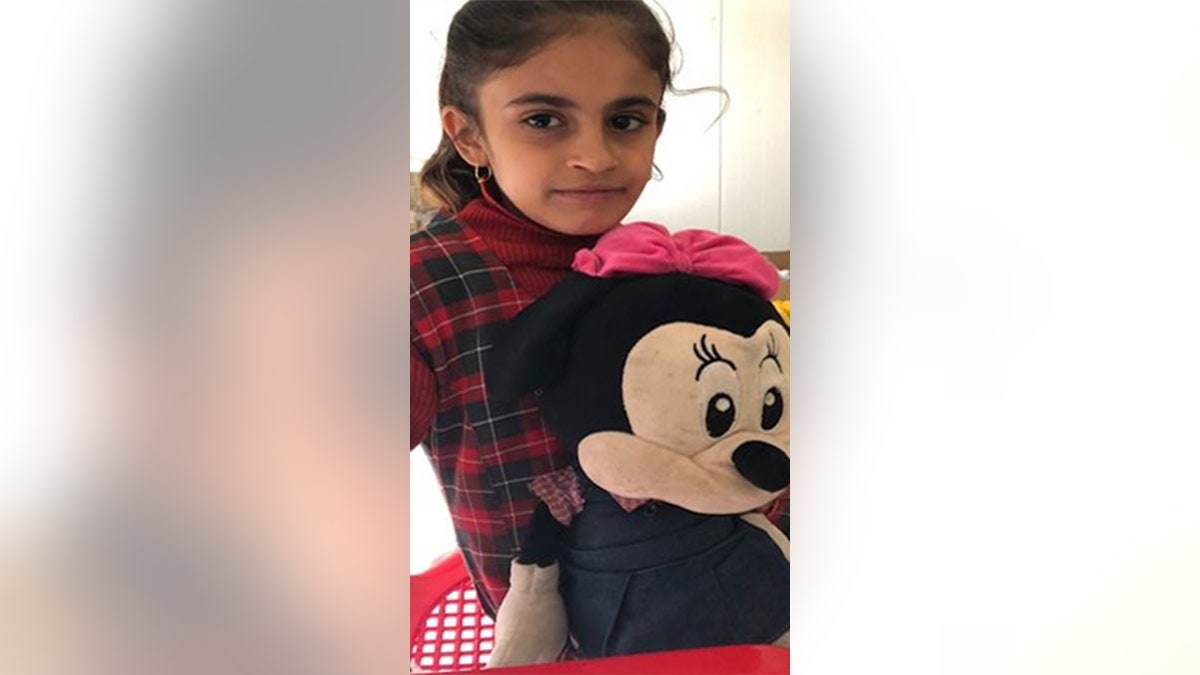
Medya, an eight-year-old Yazidi, is a survivor of ISIS occupation in Iraq.
The Islamic State has been defeated on the battlefield, but the terror remains for 8-year-old Medya.
The Yazidi girl, found to suffer from post-traumatic stress syndrome, is tormented by images of the bearded, black-clad ISIS soldiers who held her captive for three years and repeatedly raped her mother, Saran, in the room next door.
Medya would cry when she heard her mother’s screams. And even today, when the images become unbearable, Medya faints, sometimes several times a day, said Dr. Jan Kizilhan, a German doctor of Kurdish background who works with traumatized Yazidi women and children.
ISIS views the Yazidis, a non-Muslim group whose homeland is in the Sinjar region of northern Iraq, as devil worshipers whose religion is not among the Abrahamic faiths. ISIS thus considers Yazidis outside the protections of Islamic law, and deserving of harsh punishment.
ISIS fighters invaded the Yazidi homeland in August 2014, killed thousands of Yazidi men and took women as sex slaves. Many Yazidis fled Sinjar, and were stranded in the nearby mountains. Some escaped with the help of American airlifts, and airstrikes against ISIS. Kurdish fighters led the remaining Yazidis to the safety of nearby refugee camps, where they now languish.
Medya and her mother are now in a camp with 8,000 refugees in Mam Rashan, two hours from the Sinjar region. Despite the proximity to their homeland, many refugees are afraid to return.
These fears are understandable, said Elizabeth Prodromou, a professor of religion and geopolitics at the Fletcher School of Law and Diplomacy in Medford, Mass.
“There are reports that former members of ISIS have shaved their beards and don’t wear their traditional black clothes,” Prodromou said in an interview. “Some of them have moved back to abandoned villages, and are melding into the Sunni population.”
Prodromou noted that some Yazidis keep their suitcases packed in the event they have to leave at a moment’s notice. “The military defeat of ISIS does not mean the end of ISIS,” she said.
The defeat of ISIS also does not mean the end of the group in the minds of traumatized women and children. Dr. Kizilhan sees the urgency of helping Medya and those who have suffered unspeakable horrors at the hands of ISIS.
Fainting is Medya’s escape from the evil she often witnessed in her young life, Dr. Kizilhan said, speaking of the girl's sense of alienation and inability to trust people. This is evident when she is asked a question. Instead of looking at the questioner, she replies to her Minnie Mouse doll, Alis, which she clutches, said Kizilhan.
Medya didn’t speak to anyone, including her mother, for some time. But since Kizilhan and his team of local psychologists have been counseling her, she has become more trusting.
“Sometimes she tells me of dreaming of the natural beauty of the region with snow-capped mountains and streams,” he said. “She is a very smart girl, and if we can rid her of this trauma, she will have a bright future.”
In addition to the work he and his team of therapists do in the refugee camps, Kizilhan currently treats a thousand badly abused Yazidis in his clinic near Stuttgart, Germany.
The German state of Baden-Wurttemberg is helping to train more psychologists in the Yazidi region of Iraq. The state has contributed $1.2 million for the training program.
“A group of the trainees will be taught to educate future therapists themselves,” said Theresia Bauer, minister of science, research and the arts for Baden-Wurttemberg.
VICTIM OR THREAT? IRAQ HAS PLAN FOR ISIS FIGHTERS' WIVES, CHILDREN
Asked whether Germans have a special responsibility to help victims of persecution, Bauer emailed this response: "We have a historical responsibility. This has to be remembered again and again. In this respect it is important to learn from history, to make the present and the future better.”
